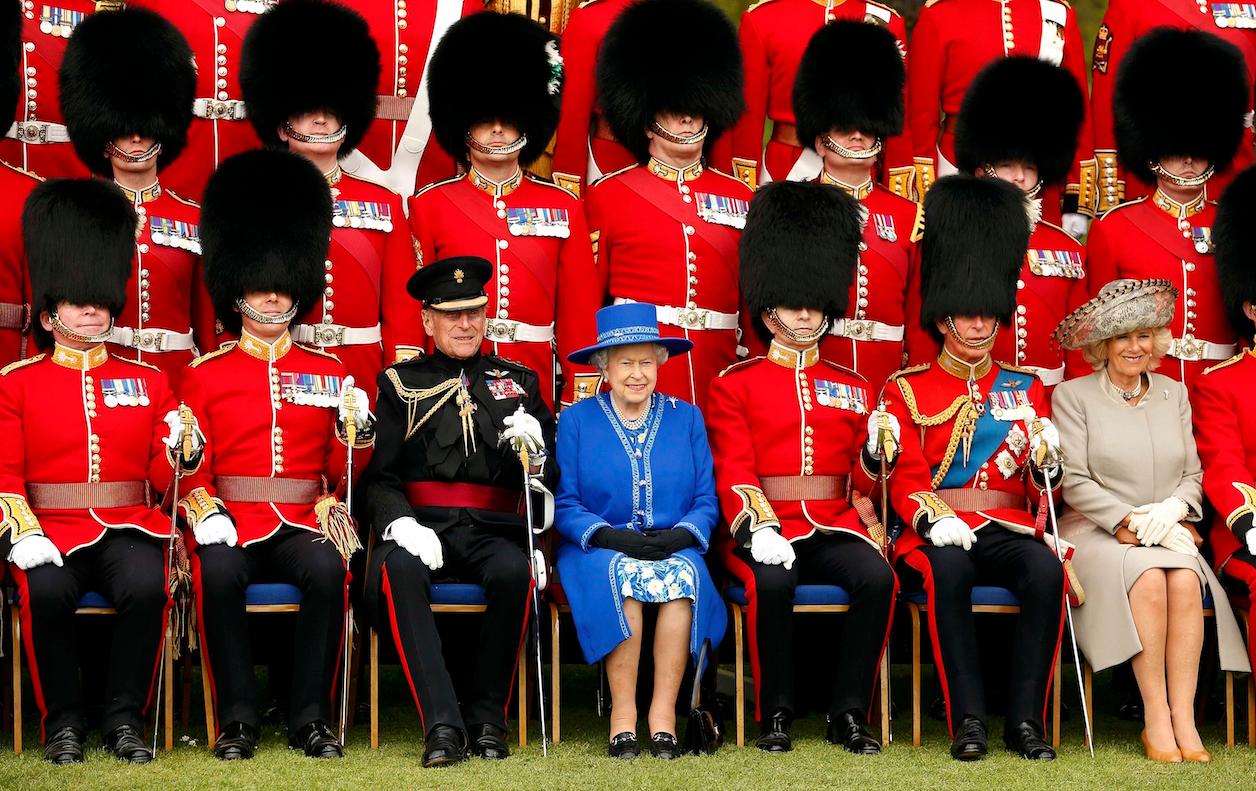Thanks for voting. Now the queen can go back to ruling Britain
Queen Elizabeth II sat for a regimental photograph with the 1st Battalion Welsh Guards after presenting them with New Colours at Windsor Castle on April 30 in London.
LONDON, United Kingdom — On Friday, there was only one thing left for Prime Minister David Cameron to do before officially returning to work after his party’s victory in the polls — go ask the queen for permission to form the next government.
Cameron had just arrived at Buckingham Palace when the BBC announced the Conservative Party’s 326th confirmed seat in the House of Commons. That's the number needed to give them an outright majority.
Cameron is the 12th prime minister the 89-year-old monarch has given her blessing to in almost 63 years on the throne.
The Conservative Party leader remains the United Kingdom’s head of government. The head of state, Queen Elizabeth II, has been in office since 1952.
Her role in British politics is ceremonial, yes, but constitutionally necessary.
Technically, it’s the queen’s government. She signs all the laws. She gives prime ministers permission to resign and permission to form a government.
But at the same time, UK law and custom keeps the monarch floating above politics, descending only to give the royal stamp on things.
During the election campaign itself, the queen goes to great lengths to stay as far away from politicking as possible to maintain her neutrality. Legally, she can vote. In practice, she doesn’t.
While Britons voted Thursday, Elizabeth holed up in Windsor Castle, about 50 miles west of London.
When the Conservatives’ likely win became clear Friday morning, she traveled to Buckingham Palace in London to await Cameron’s visit.
No one thought it would be this tidy. For months, polls have predicted that no party would emerge a clear winner in the election. In the last election in 2010 it took five days to hammer out a coalition between the Conservatives and Liberal Democrats. Pollsters expected an equally messy result this year.
More from GlobalPost: The UK’s election results are pretty shocking
The queen was planning to skip celebrations in London today marking 70 years since the end of World War II in Europe, to avoid so much as a stray glance or smile that might be interpreted as a sign of her preferences.
That’s not an issue now. On May 27, she’ll visit Parliament to read out the Queen’s Speech, the annual outline of what the government hopes to achieve that year. Unexpectedly, it’s already clear what that government will look like.
Every day, reporters and producers at The World are hard at work bringing you human-centered news from across the globe. But we can’t do it without you. We need your support to ensure we can continue this work for another year.
Make a gift today, and you’ll help us unlock a matching gift of $67,000!
